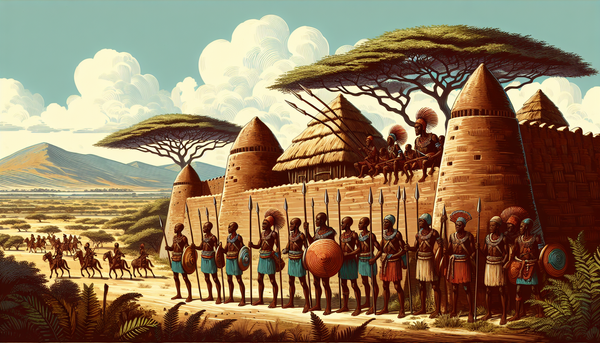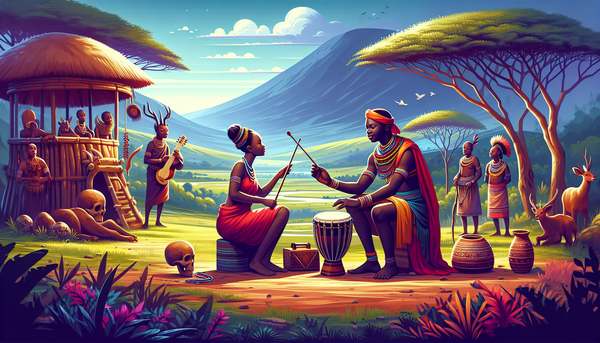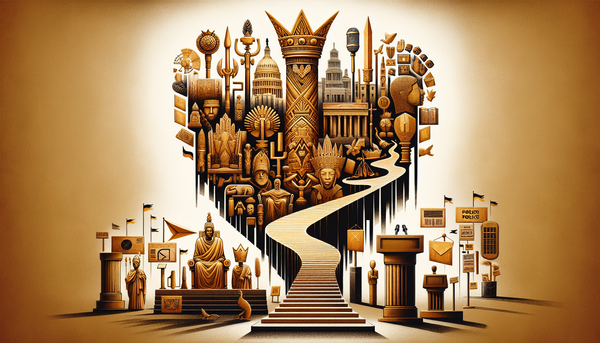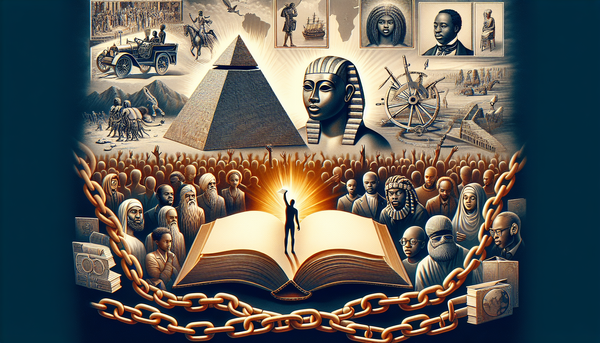The Development of African Literature Through the Ages
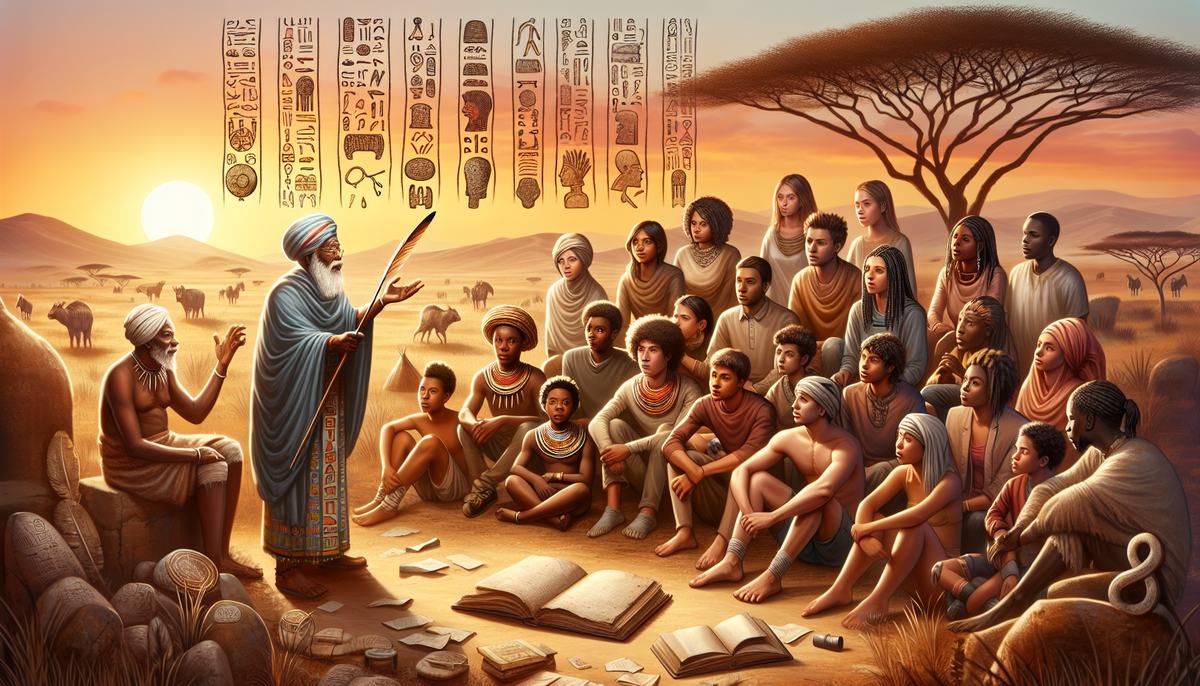
Early Oral Traditions and Mythologies
Before the advent of written literature, African cultures were rich in oral traditions, which served as the primary means of storytelling and knowledge transmission. These narratives encompassed a vast array of genres, including myths, legends, folktales, and proverbs. Oral storytellers, often referred to as griots or praise singers, played a crucial role in preserving history, cultural values, and social norms within their communities.
Mythologies in Africa often revolved around creation stories, deities, and the interconnectedness of life. They provided explanations for natural phenomena and guided moral conduct through allegorical tales. For instance, in many African societies, trickster figures like Anansi the Spider imparted lessons about human nature and the complexities of life through humorous and cunning narratives.
These oral traditions were not static; they evolved over generations, reflecting the dynamic nature of African societies. Storytelling sessions often featured communal participation, fostering a sense of belonging and shared identity. As a result, these narratives not only entertained but also educated and informed audiences, laying the foundation for the vibrant tapestry of African literature that would emerge in later years as societies began to adopt written forms.
Influence of Colonialism on Narrative Forms
Colonialism profoundly shaped the landscape of African literature, introducing new narrative forms while simultaneously challenging and transforming traditional storytelling practices. As European powers colonized vast territories across the continent, they brought with them their languages, cultures, and literary conventions, which often marginalized indigenous voices and heritages. This led to a complex interplay between local oral traditions and Western literary forms.
Many African writers began to adopt European languages—particularly English and French—creating a unique blending of styles and themes. This linguistic shift allowed them to reach larger audiences but often came with the risk of losing cultural nuances inherent in their native tongues. Colonial literature frequently depicted African societies through a Eurocentric lens, often reducing rich cultural identities to simplistic stereotypes. In response, many African authors utilized these new narrative modes to critique colonial attitudes, giving rise to a form of resistance literature.
The emergence of the novel as a dominant genre during this period was particularly significant. African writers used the novel to explore identity, post-colonial realities, and the complexities of cultural hybridity, leading to a rich and diverse literary output that would later inform the global literary canon and inspire subsequent generations of African authors.
Post-Independence Renaissance
The post-independence era in Africa, particularly from the late 20th century onwards, witnessed a literary renaissance characterized by an explosion of creativity and a reassessment of identity and cultural heritage. With many African nations gaining independence from colonial rule, writers found themselves navigating a complex landscape defined by both newfound freedom and persistent challenges. This period saw the emergence of a diverse range of voices that sought to explore the realities of life in independent African states.
Authors such as Chinua Achebe, Ngũgĩ wa Thiong'o, and Wole Soyinka became prominent figures during this renaissance, employing their works to address themes of nation-building, identity, and the lingering effects of colonialism. The novel, poetry, and drama flourished as platforms for critical engagement with political issues, social injustices, and cultural reclamation. Writers began to embrace indigenous languages and storytelling techniques, blending them with global literary forms.
Moreover, the post-independence period sparked an interest in Africa's oral traditions, prompting authors to incorporate elements of folklore and myth into their narratives. This fusion not only enriched African literature but also reinforced a sense of cultural pride and solidarity among readers, ultimately reshaping the continent's literary landscape for future generations.
Contemporary Trends and Global Recognition
In recent decades, African literature has undergone a transformation, achieving substantial global recognition and engaging with contemporary issues that resonate across cultures. The rise of digital media and international publishers has played a pivotal role in amplifying African voices, making it easier for writers to share their works with a broader audience. Authors such as Chimamanda Ngozi Adichie, Tsitsi Dangarembga, and Ben Okri have gained widespread acclaim, often featured in prestigious literary awards and festivals worldwide.
Contemporary African literature often delves into themes such as migration, globalization, environmental issues, and gender equality, reflecting the complexities of modern life on the continent. Writers are increasingly experimenting with narrative forms, combining traditional elements with innovative storytelling techniques that challenge conventional literary boundaries. For instance, the use of multiple perspectives and non-linear timelines has become more prevalent, creating dynamic narrative landscapes.
Moreover, the focus on representation and authenticity has sparked dialogues surrounding identity and intersectionality. African literature today celebrates diversity in its many forms, encompassing various ethnic, linguistic, and cultural backgrounds. This evolution not only enhances the richness of the literary canon but also fosters a deeper understanding of Africa's multifaceted identity, paving the way for future generations to continue its legacy.
Role of Women in Shaping Modern Narratives
Women have played a pivotal role in shaping modern African literature, contributing vital perspectives and narratives that challenge societal norms and advocate for change. Historically, female writers faced significant barriers, including limited access to education and publishing opportunities due to patriarchal structures. However, the emergence of influential voices like Buchi Emecheta, Mariama Bâ, and Yaa Gyasi has been crucial in redefining the literary landscape.
These authors often address issues such as gender inequality, identity, and cultural heritage, using their stories to highlight the struggles and resilience of women in African societies. Their works serve as powerful tools for social critique and empowerment, fostering conversations on topics like female agency and reproductive rights. In addition, emerging writers such as Tintiq Mohamed and Jowhor Ile are continuing this tradition, exploring contemporary themes connected to femininity, sexuality, and the intersectionality of race and gender.
The influence of women extends beyond writing; they are increasingly taking on editorial, publishing, and curatorial roles that promote diverse literary voices. As women continue to assert their place in literature, their contributions not only enrich the narratives within African literature but also inspire future generations to share their stories, making women’s voices essential to the continent's literary evolution.
Technological Impact on Publication and Distribution
The advent of technology has revolutionized the publication and distribution of African literature, breaking traditional barriers and facilitating a global reach for authors. Digital platforms, including e-books and online publishing, have become increasingly popular, allowing writers to bypass conventional gatekeeping mechanisms of the literary world. This democratization of publishing means that emerging authors can share their work without the need for established publishing houses, leading to a diverse array of voices in the literary canon.
Social media platforms play a crucial role in this transformation, serving as marketing tools and spaces for engagement between writers and readers. Authors can directly connect with their audience, build communities, and promote their works through interactive content. Online literary magazines and blogs further expand the avenues for authors to share short stories, poetry, and essays, reaching global audiences in real-time.
Additionally, technological tools have enabled writers to experiment with multimedia formats, blending text with audio, visual art, and interactive elements to create immersive storytelling experiences. This evolution not only enriches the narrative but also reflects the contemporary cultural landscape. As technology continues to advance, it offers new opportunities for African writers to assert their presence in the global literary market, fostering a vibrant and interconnected literary ecosystem.
Integration of African Diaspora Voices
The integration of African diaspora voices into contemporary literature has significantly enriched the narrative landscape, fostering a deeper understanding of the complexities of identity, culture, and belonging. Writers of African descent living outside the continent have contributed unique perspectives shaped by their experiences in diverse cultural contexts, often exploring themes of displacement, hybridity, and resilience. Authors like Chimamanda Ngozi Adichie, Ta-Nehisi Coates, and Jesmyn Ward exemplify how these experiences can illuminate the shared histories and struggles of the African diaspora.
Diaspora literature frequently interrogates notions of home and identity, reflecting the duality of belonging to both African and Western cultures. This dialogue expands the literary discourse, challenging stereotypes and broadening the representation of African identities in mainstream literature. Additionally, the experiences of diaspora writers often intersect with global issues such as migration, racism, and social justice, making their narratives relevant not only to African communities but also to a worldwide audience.
The rise of literary festivals, workshops, and online platforms dedicated to diaspora literature has further facilitated this integration, creating spaces for collaboration and exchange. As these voices continue to resonate within the global literary community, they contribute to a richer, more nuanced understanding of the African experience, bridging cultural divides and reinforcing the interconnectedness of humanity.
